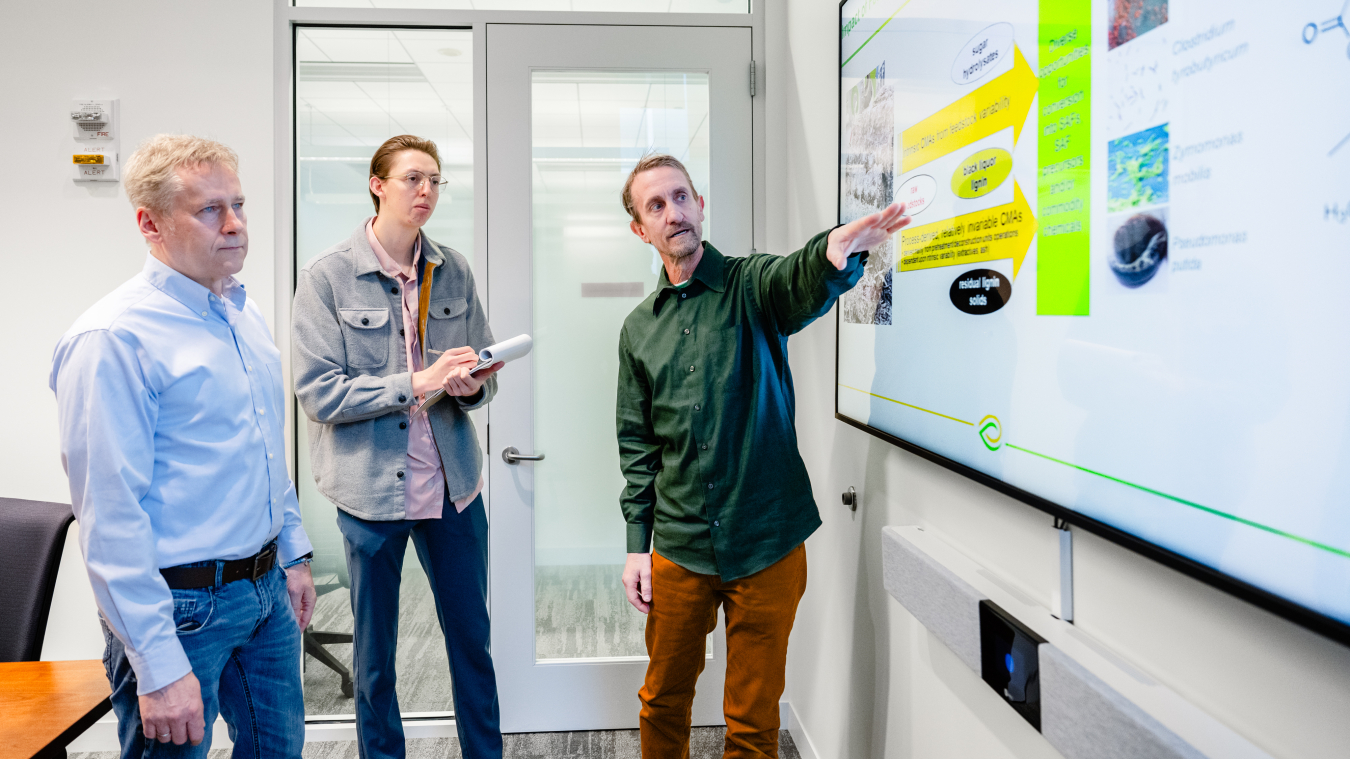
The Feedstock-Conversion Interface Consortium (FCIC) is determining how biomass feedstock variability affects the low-temperature conversion of sugar and lignin to mitigate the risks posed by this variability.
Approach
The FCIC is using both experimental and modeling approaches to investigate the effects of biomass feedstock variability on deconstruction and sugar and lignin utilization.
Outcomes

Researchers explore the impacts of feedstock variability in low-temperature conversion for the FCIC. Photo from Argonne National Laboratory.
The knowledge and tools that evolve from this research will mitigate the risks posed by feedstock variability on low-temperature biomass conversion performance, which will result in:
- Minimizing process stream variability after deacetylation
- Understanding and predicting the effects of feedstock variability on deconstruction as well as downstream conversion processes.
Impact
Experimental and modeling approaches will improve understanding and prediction of the performance of downstream microbial conversion processes.
Contact
For more information, contact the FCIC.
Other FCIC Research and Capabilities
Learn about all of FCIC’s research areas and capabilities/facilities.

